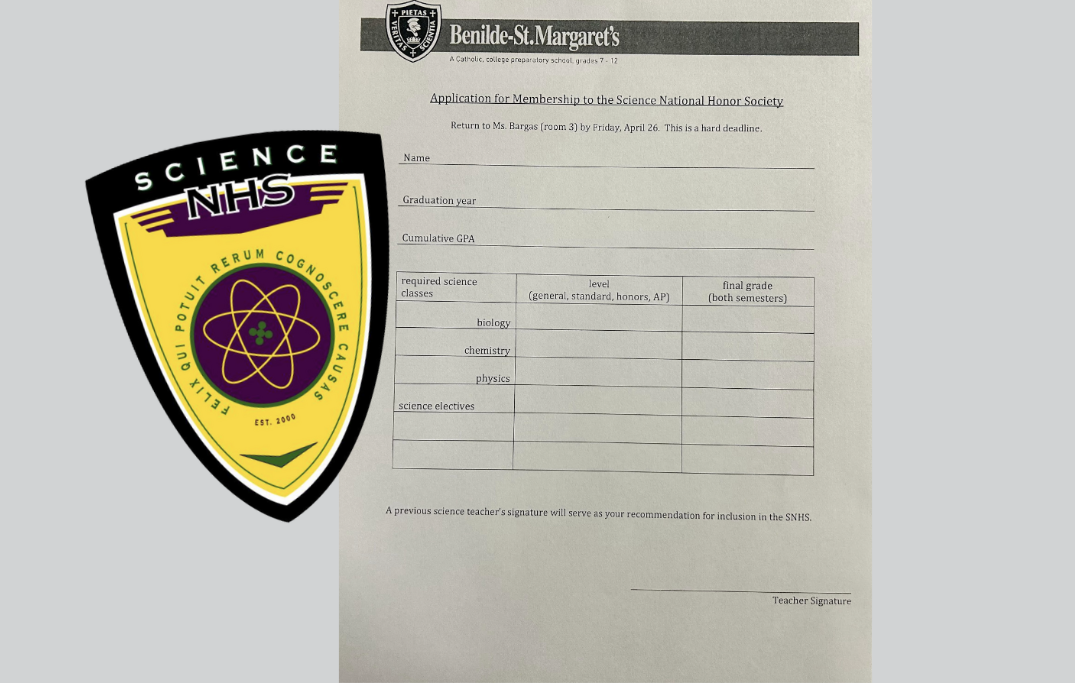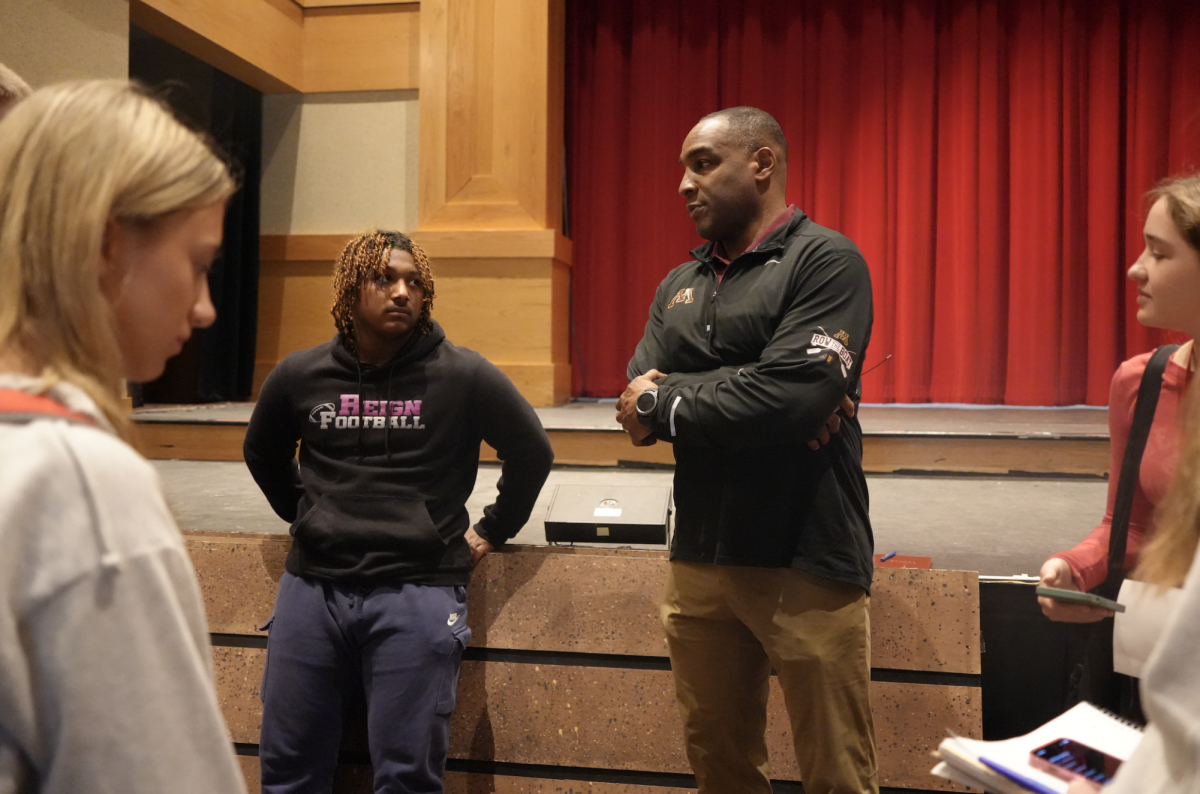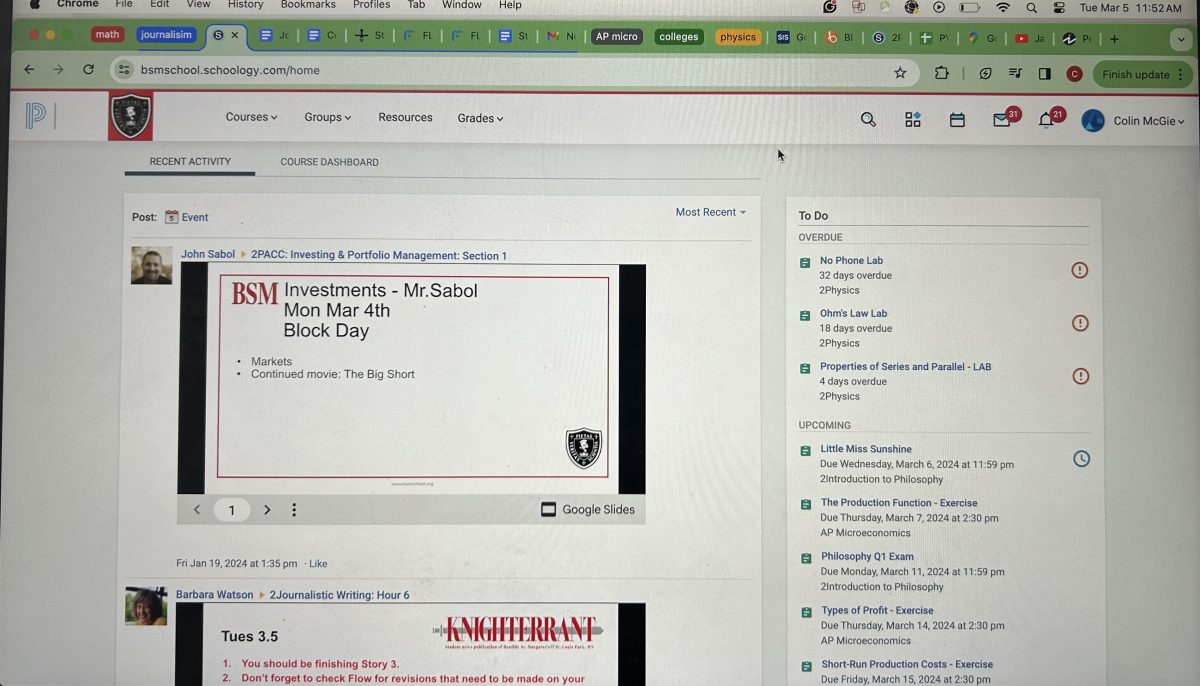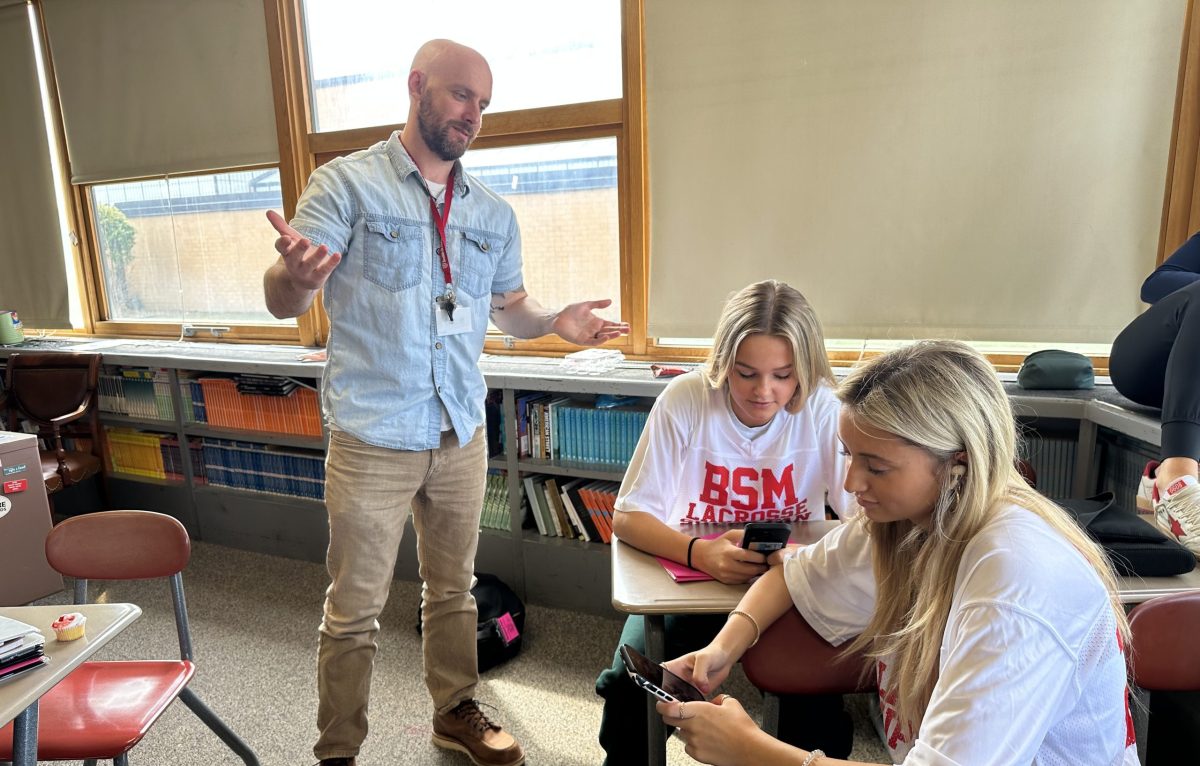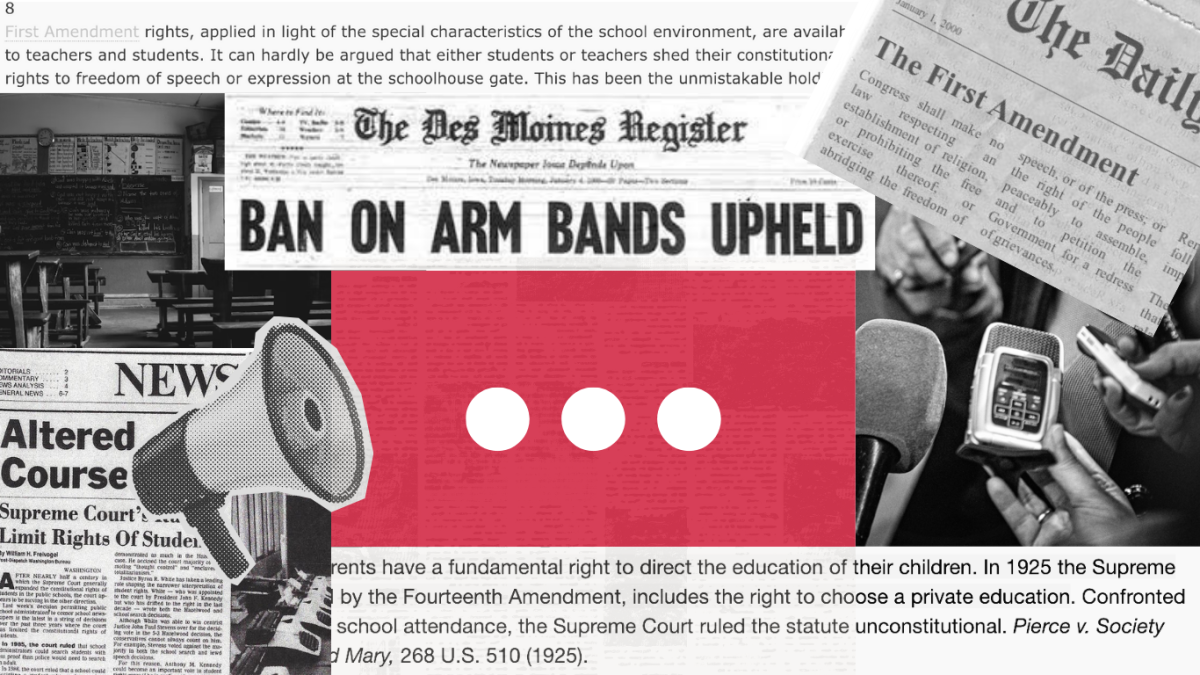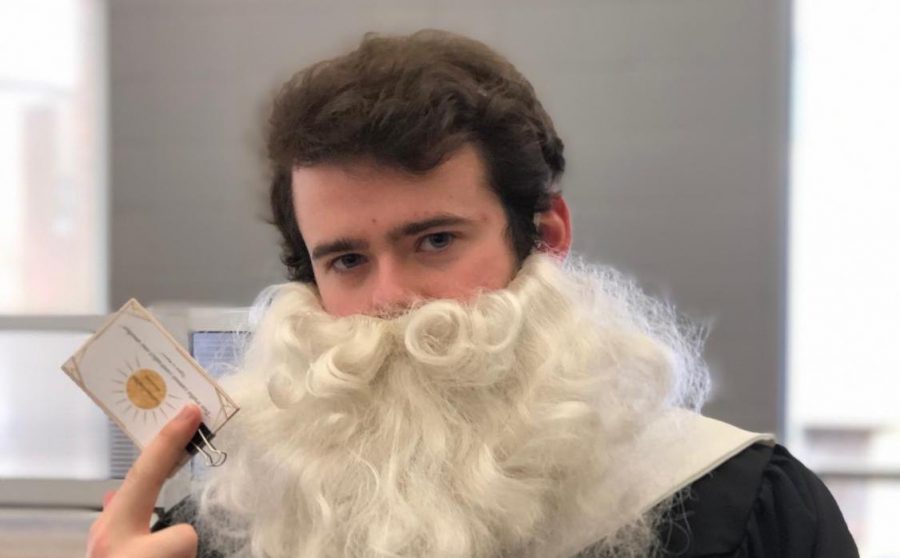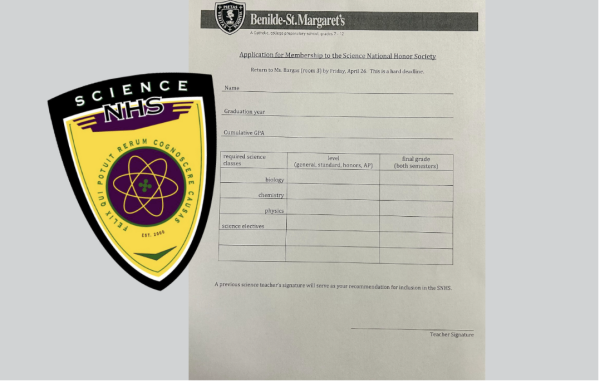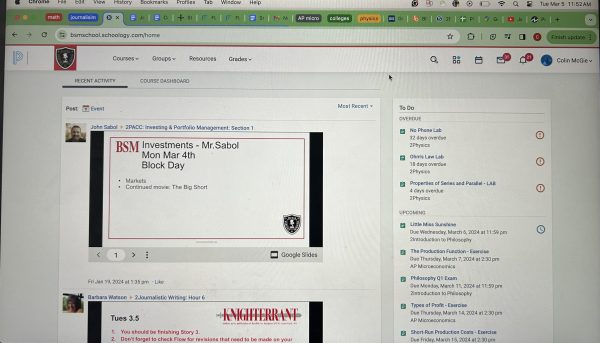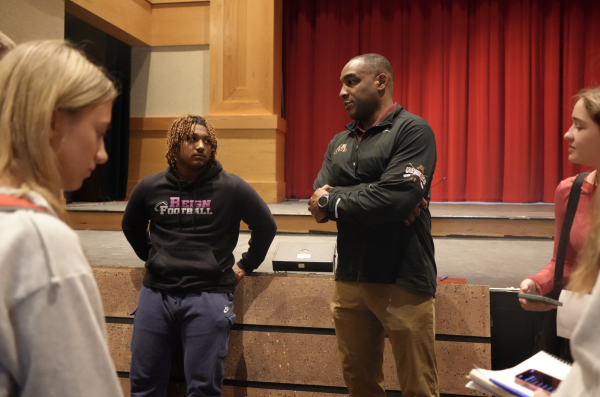AP Euro studies history in character
March 21, 2019
Friday, March 8, the AP European History class hosted an “Enlightenment Salon,” where students dressed up and acted as important figures of the Age of Enlightenment. During the Salon, the library was open to parents, other students and teachers and anyone who wanted to learn a little more about the Enlightenment.
During the Enlightenment (1685-1815), European politics, philosophy, science, and communications were drastically changed. People learned to think of the world in a different way, which is why this time period is often called the “Age of Reason.” Salons were held very often during the 18th century for important men and women to engage in intellectual discourse.
Students were assigned an individual who was alive during the time and most likely attended many of these salons. BSM senior Riley Norman took on the role of Adam Smith, a Scottish economist and philosopher during the 1700s who is known as the “Father of Economics.” “I thought that the Salon was a great and fun way to learn the material instead of a test,” Norman said.
I thought that the Salon was a great and fun way to learn the material instead of a test
— Riley Norman
BSM senior Aaron Wachowiak became Ludwig van Beethoven, the notorious German pianist and composer. “What?” Wachowiak responded to most questions he was asked, due to the fact that Beethoven was deaf in his later years. Luckily, Wachowiak held a book for people to write questions and comments in so he could read them. “I had a rather large costume, and the library felt very hot,” Wachowiak said.
The Salon lasted from periods 1-6 during the school day, which may seem like a lot of work by itself, but much more work went into the preparation. The students needed to do extensive research prior to the Salon. After that, they needed to write a résumé and a position paper about what their character believed on certain topics that had to be at least two page, single-spaced paper.
At the Salon, students were also required to give a speech acting in character. The speeches were supposed to be between 2-3 minutes, but they often ran much longer. “I think Jack Klassen’s (who had the role of Peter the Great) speech went on for about ten minutes,” Norman said.
Overall, the Salon was a huge success that participants from both sides really enjoyed. “The Salon was a unique way for us to learn that involved not only our knowledge, but the questions of the visitors as well,” Norman said.

